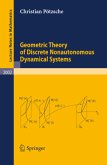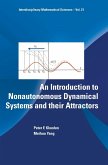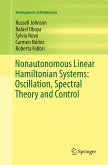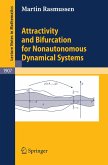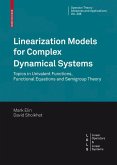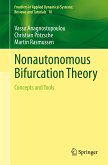The main challenge in the study of nonautonomous phenomena is to understand the very complicated dynamical behaviour both as a scientific and mathematical problem. The theory of nonautonomous dynamical systems has experienced a renewed and steadily growing interest in the last twenty years, stimulated also by synergetic effects of disciplines which have developed relatively independent for some time such as topological skew product, random dynamical systems, finite-time dynamics and control systems. The book provides new insights in many aspects of the qualitative theory of nonautonomous dynamical systems including the spectral theory, the linearization theory, the bifurcation theory.
The book first introduces several important spectral theorem for nonautonomous differential equations including the Lyapunov spectrum, Sacker-Sell spectrum and finite-time spectrum. The author also establishes the smooth linearization and partial linearization for nonautonomous differential equations in application part. Then the second part recalls the multiplicative ergodic theorem for random dynamical systems and discusses several explicit formulas in computing the Lyapunov spectrum for random dynamical systems generated by linear stochastic differential equations and random difference equations with random delay. In the end, the Pitchfork bifurcation and Hopf bifurcation with additive noise are investigated in terms of change of the sign of Lyapunov exponents and loss of topological equivalence.
This book might be appealing to researchers and graduate students in the field of dynamical systems, stochastic differential equations, ergodic theory.
The book first introduces several important spectral theorem for nonautonomous differential equations including the Lyapunov spectrum, Sacker-Sell spectrum and finite-time spectrum. The author also establishes the smooth linearization and partial linearization for nonautonomous differential equations in application part. Then the second part recalls the multiplicative ergodic theorem for random dynamical systems and discusses several explicit formulas in computing the Lyapunov spectrum for random dynamical systems generated by linear stochastic differential equations and random difference equations with random delay. In the end, the Pitchfork bifurcation and Hopf bifurcation with additive noise are investigated in terms of change of the sign of Lyapunov exponents and loss of topological equivalence.
This book might be appealing to researchers and graduate students in the field of dynamical systems, stochastic differential equations, ergodic theory.



